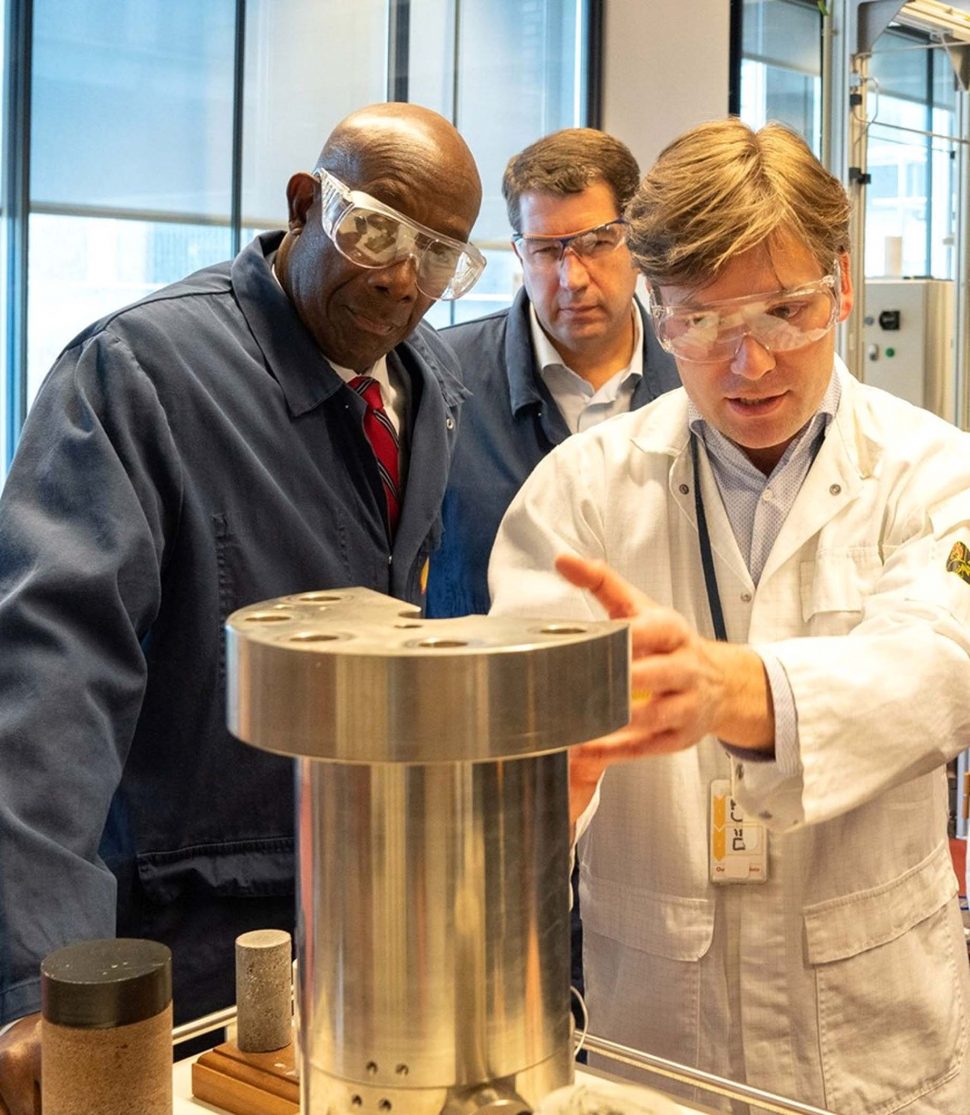(Trinidad Guardian) T&T could earn as much as $10 billion over the next nine years following the signing of a deal between Government and Royal Dutch Shell.
The announcement was made by Energy Minister Franklin Khan who gave details to the Parliament on Monday following more a year of negotiations. He revealed that Shell agreed to pay government $2.5 billion by the end of 2019, the money to be paid in US to the sum of US $397 million.
Like the BPTT payment last year to government of $1 billion, Shell is making its payment but not admitting to cheating the country of large sums of revenue in transfer pricing.
“The outcome of these phase 1 negotiations, with Shell, resulted in an agreement to pay the government approximately, US$397m to the end of 2019 and the parties are moving into phase 2 of the negotiations which surround the restructuring of Atlantic LNG,” Khan told the Parliament.
The Energy Minister attacked the Opposition and the Energy Chamber of T&T for seeking to re-open the LNG contracts with energy majors BPTT and Shell, but noted that the re-negotiations had led to billions in revenue to the country.
Khan declared: “Both the UNC and members of the Energy Chamber accused the Government of being anti-investment and pursuing action that would constitute a violation of the sanctity of contracts executed with international oil companies.”
The Energy Minister said between 2010 and 2014 it was estimated that the country lost up to US$6 billion annually from transfer pricing practices of BPTT and Shell.
He said that is why in April 2018, he was part of a Government team led by the Prime Minister Dr Keith Rowley and including Communications and National Security Minister Stuart Young which met in separate discussions in London, with Shell and BP to advance the matter of improving the country’s position.
He explained: “Arising from these discussions, both Shell and BP agreed to establish empowered teams to engage the government separately on LNG marketing arrangements, gas-related issues and other important issues raised by the company.”
In a detailed speech on the agreement signed in The Hague, Netherlands, Khan told the Parliament that over the next nine years the country will receive improved revenue of $6.4 billion from Atlantic’s Trains 2,3 and 4 and should Train 1 continue to operate, could earn $800 million in additional revenue annually. The Energy Minister said it was agreed to use the new Train 1 formula for further investment which will provide increased revenue to Government. In addition, the government team negotiated that subject to projected available facility capacity, it will be entitled to utilise up to 50 per cent of the North Coast Marine Area (NCMA) infrastructure capacity, with no liability for any historic capital costs. There will also be an equitable sharing of operational costs and any new capital cost.
The Minister said Shell will embark on two projects that when developed, will add natural gas to the country’s overall supply. He estimated government earnings from the two projects to exceed $22 billion over the life of the fields.
“In keeping with its investment programme, Shell has embarked on the development of its Colibri and Barracuda projects. For the Barracuda project 5C, first gas is projected for 2020. First gas for the Colibri project, block 22 and NCMA 4 is projected for 2021.”
The Energy Minister added: “The government and Shell also agreed that gas supplied from these Production Sharing Contracts (PSCs) and any new sanctioned PSCs for the production of LNG will be based on the new Train 1 Freight on Board (FOB) formula. It is estimated that the value of approximately US$3.3 billion will be accrued to the Government from these two projects.”
Khan said the Rowley administration had been building the platform of mutual respect and the ability to sit in the room as equals with the multinational companies. He reminded that the government’s spotlight on energy was held against a backdrop of an inadequate economic return from the exploitation of the country’s natural gas resources.
The Energy Minister said while Government welcomes investment it feels the resource owner, which is the people of T&T, must enjoy a fair economic rent.
“Through our efforts, this is now clearly understated by the International Oil Companies (IOC’s) and has translated into the economic gains that we have collectively achieved. These benefits will accrue to the people of Trinidad and Tobago,” Khan assured.





